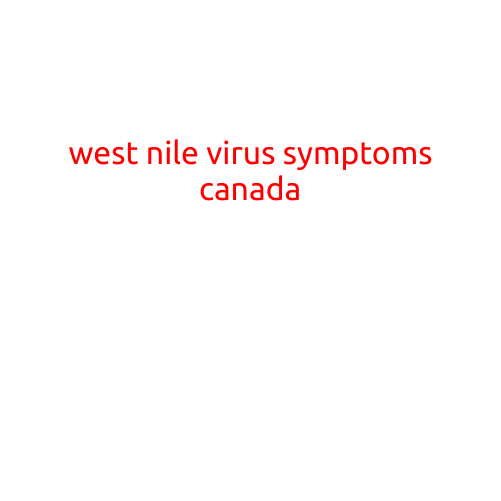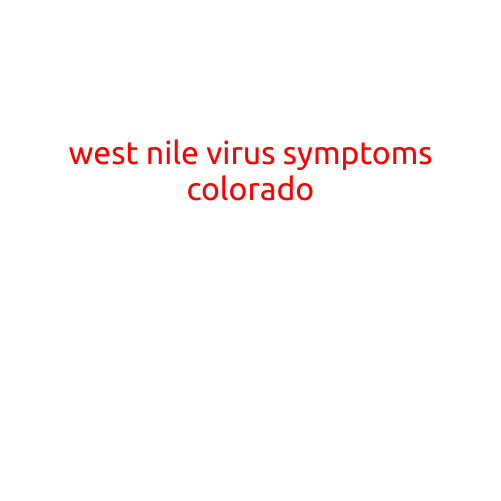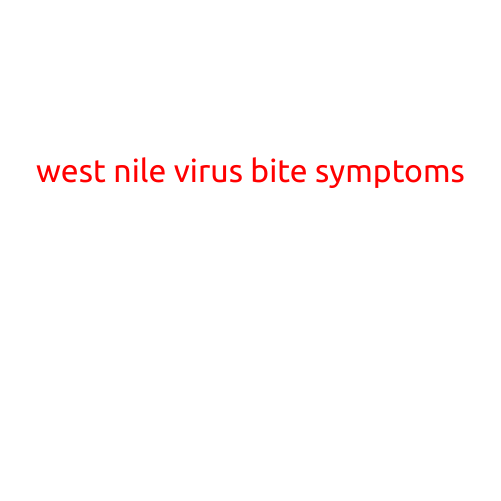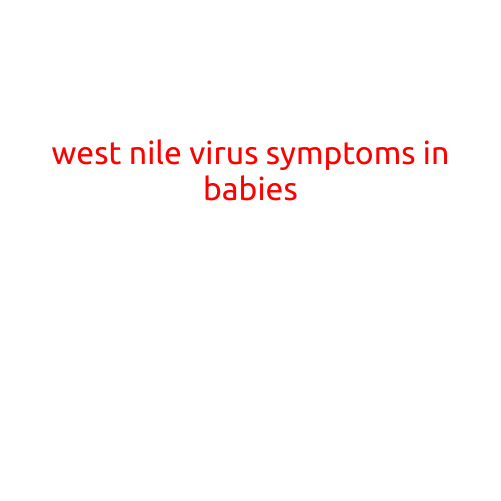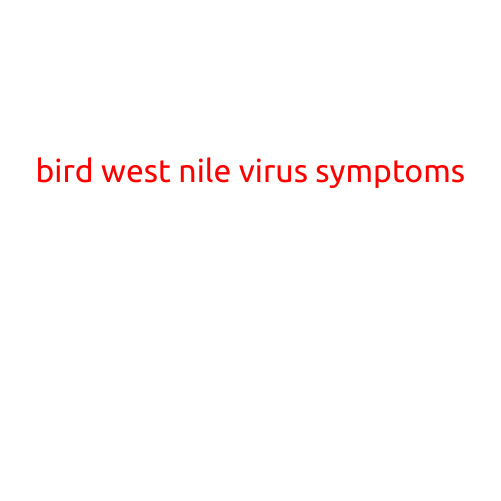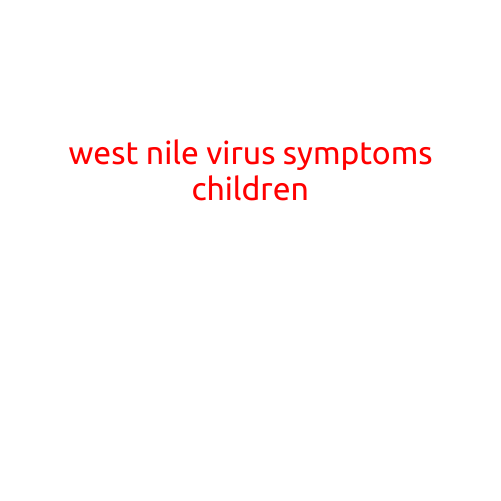
West Nile Virus Symptoms in Children: What Parents Need to Know
As the summer months approach, parents are reminded to take precautions against the West Nile virus (WNV). While WNV is typically associated with older adults, children are not immune to the virus, and it’s essential for parents to understand the symptoms to provide timely treatment and prevent complications.
What is West Nile Virus?
West Nile virus is a mosquito-borne illness caused by the West Nile virus, which is transmitted to humans through the bite of an infected mosquito. According to the Centers for Disease Control and Prevention (CDC), WNV is a leading cause of viral encephalitis (inflammation of the brain) in the United States.
Symptoms of West Nile Virus in Children
In children, WNV symptoms can be mild, moderate, or severe and may include:
- Fever: High fever is one of the most common symptoms of WNV in children, often accompanied by a headache and stiff neck.
- Headache: A severe headache is a common symptom, often described as severe and throbbing.
- Vomiting: Some children may experience vomiting, which can lead to dehydration if not treated promptly.
- Severity of symptoms varies: Symptoms can range from mild to severe, and in some cases, children may not exhibit any symptoms at all.
- Severe symptoms: In rare cases, children may develop severe symptoms, including inflammation of the brain (encephalitis), meningitis, or even death.
What to Do if Your Child Shows Symptoms
If your child exhibits any of the above symptoms, it’s essential to seek medical attention immediately. Early detection and treatment can significantly improve outcomes. Here’s what to do:
- Call your pediatrician or emergency services: If your child shows signs of severe symptoms, such as difficulty breathing, inability to wake up, or severe headache, call emergency services immediately.
- Provide medical history: Share your child’s medical history, including any previous illnesses or allergies, with your pediatrician or healthcare provider.
- Perform a physical exam: Your child’s healthcare provider will perform a physical exam to assess their overall condition and assess the severity of symptoms.
- Lab tests: Your child may undergo blood tests or lumbar puncture (spinal tap) to confirm the diagnosis and rule out other conditions.
Prevention and Control Measures
While there is no vaccine available for WNV in children, there are steps you can take to prevent the virus:
- Use insect repellent: Apply insect repellent containing DEET, picaridin, or oil of lemon eucalyptus to your child’s exposed skin and clothing.
- Wear protective clothing: Dress your child in long-sleeved shirts, long pants, and closed shoes when outdoors.
- Avoid peak mosquito hours: Mosquitoes are most active during dawn and dusk, so encourage your child to stay indoors during these times.
- Eliminate breeding sites: Regularly inspect your child’s play areas for standing water and eliminate any potential breeding sites for mosquitoes.
Conclusion
While West Nile virus is not typically associated with children, it’s crucial for parents to understand the symptoms and take proper precautions to prevent the virus. If your child shows signs of symptoms, seek medical attention immediately to ensure timely treatment and prevent complications. By taking proactive measures and educating yourself on WNV, you can help protect your child from this potentially serious illness.
